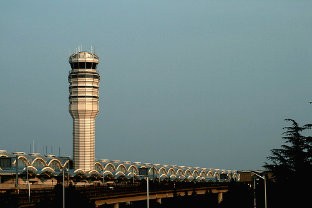Who Congress works for

The across-the-board sequester cuts are a supreme case of Washington dysfunction. They were designed to force a political deal that leaders couldn’t figure out how to reach on their own, and then legislators proved unable to reverse the law that most of them were against to begin with.
Recent weeks have shown, however, that Congress is actually quite capable of getting things done if the bill in question is a narrow one that directly affects legislators’ primary demographic—people with a lot of money.
Shortly after the sequester took effect in March, Congress reversed its furloughs for meat safety inspectors, without whom meatpacking plants aren’t allowed to operate. Then in April it eliminated furloughs for air traffic controllers, too. Americans of means could rest easy: the times we live in may call for sacrifice, but that doesn’t mean a gap in the supply of steak or that business travelers have to tolerate flight delays.
Read our latest issue or browse back issues.
Of course, low-income people eat meat, too; they also fly occasionally. And restoring funds in these key areas is certainly good for the overall economy. But these congressional actions set a political precedent: the sequester—the main point of which was its sweeping, omnibus scope—can be scaled back on an à la carte basis. Following that example, Congress could continue to focus narrowly on reversing those cuts that affect powerful industries and well-heeled consumers while ignoring the impact on the rest of the population.
Meanwhile, the sequester threatens to strip 113,000 low-income families of their public housing vouchers. Head Start anticipates dropping 70,000 kids, while Meals on Wheels expects to serve 4 million fewer meals this year. Unemployment checks will drop by more than a tenth, and reduced federal contributions have prompted 11 states to consider dropping unemployment insurance altogether.
Then there’s the school breakfast program, which subsidizes meals for low-income students. When Congress restored the U.S. Department of Agriculture’s funding for meat inspectors, it removed money from the breakfast program, which the USDA also runs. The meat industry holds a lot more sway over Congress than hungry kids do. Low-income Americans lack the protection of a powerful Washington lobby.
What’s to keep these deep cuts to the social safety net from becoming permanent? The programs’ defenders in Congress could refuse to pass any more piecemeal adjustments to the sequester, holding out instead for a bill that replaces it altogether. Or they could insist on bundling repeals of cuts that affect the rich with others focused on antipoverty spending, refusing to support the one without the other.
More bills like the one that reversed the air traffic controller furloughs would be bad news for the social safety net, since the less the sequester affects people with economic and political power, the less legislators will be inclined to reverse it. And low-income Americans have already made more than their share of sacrifices.






